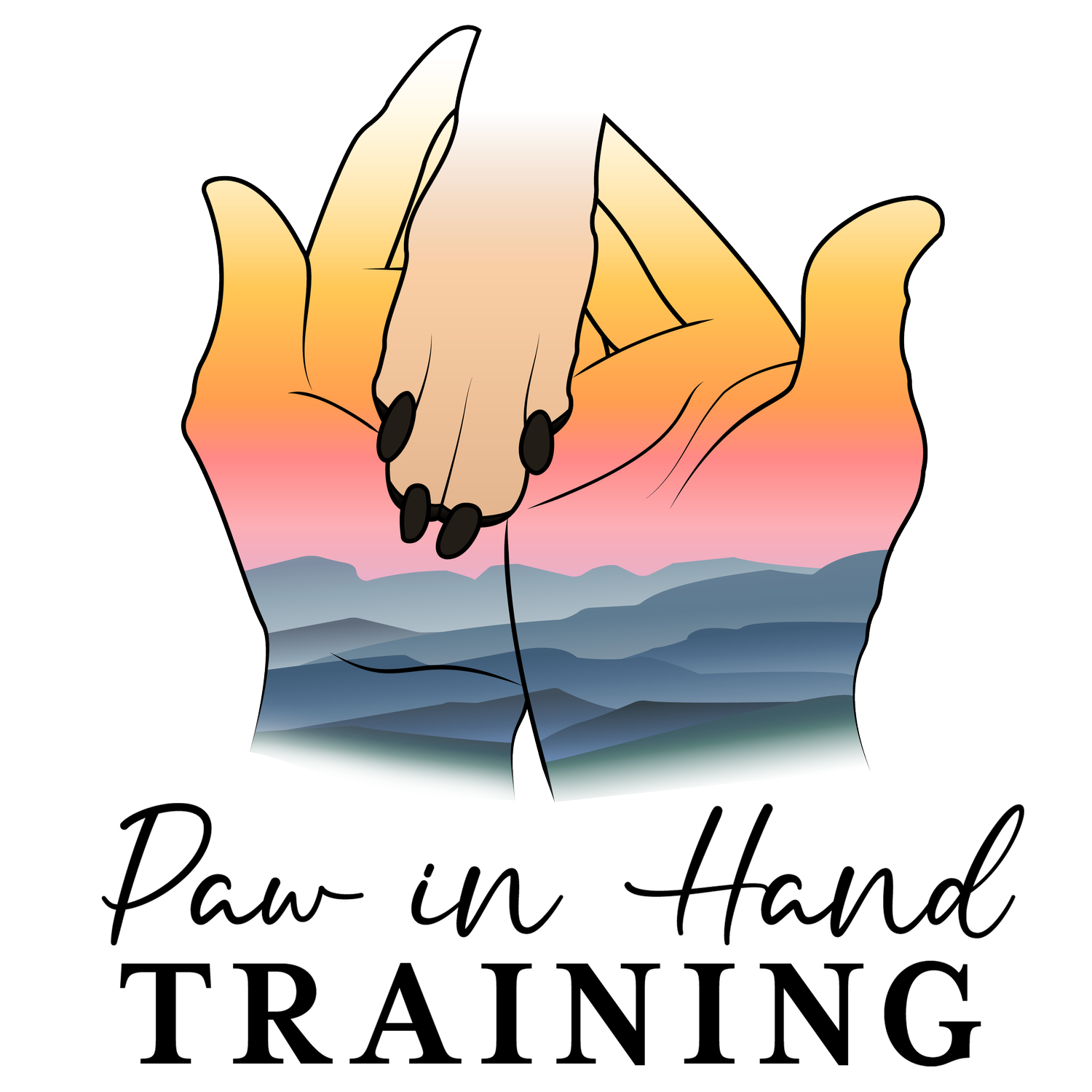
Frequently Asked Questions
Great question! It's recommended to start them at 8 weeks of age, or when they've had 1-2 sets of vaccinations.
What age do I start training my puppy?
How do I pick a trainer?
There is no answer to that question, but I can give you a resource to assist you. The American Veterinary Society of Animal Behavior, "How To Choose A Trainer," is a great source.
Training is an ever changing field, and trainers should be kept up-to-date with what's going on in their field. Are they "certified"? How do their dogs behave? Have you seen them? Have their dog(s) earned their AKC CGC? CGCA? Therapy title? What's included in the classes?
What can I expect during training?
Expect to have fun and learn the process of training the dogs. The first time we meet can be the most challenging because there are lots of things that affect the training, such as:
Figuring out what motivates the dog (food, play, attention)
Family dynamics
Dog dynamics (Does Rex like Fido? Why/why not?)
Unfortunately I don't have a magic fairy wand, so just be patient and give the training a chance to work. I don't believe in giving up on dogs, which is why I am willing to work with aggressive dogs.
Do you have a guarantee with your training?
If you are not satisfied with the results, we offer training again at no charge. However, I will not do it again when you didn't do your homework did not work with the dogs when I'm not there. I understand people get busy and have lives, but in order for training to your dog to learn, you have to commit to it. I cannot be taken at fault when you lack follow-through.
For extenuating circumstances (death/injury of a pet, child, family member, etc.) a refund may be given, but all refunds are given at the sole discretion of the trainer. It's no different than signing up a child for dance class, you pay for the spot whether the child is there or not. I try to be very accommodating, so if you know you're going to miss a class I have been known to schedule make-up classes.
Who can come to the training?
Anyone, but depends on the training. If you're looking for your basic obedience commands (sit, stay, etc.) it's not necessary for all family members to be there at every training, as long as your willing to teach the other family members what we went over and stay consistent. If we're dealing with an aggression case between dogs and children, then obviously I would need the parents and children there as well and it would be more imperative for all family members to be there.
Can you just give me some hints/tips and I can try it at home?
No. I want my training to work for you and your dog, and when I can't see my training in action and have the opportunity to follow-up I can't ensure it is working.
I've trained dogs for years, I don't need puppy class!
If I had a dime for every time I heard this, I could retire to Florida in a million dollar mansion and fund the worlds entire shelter system. Yes you do and your dog does. I'm a professional trainer, which means I do this for a living, and I still take my puppies to puppy classes when I get a new one. Why?
You can't teach bite inhibition as effectively as another dog can.
You can't teach your dog how to properly greet another dog.
You can't teach doggie social behavior, you're not a dog.
Dog parks are not safe for teaching social behaviors.
You can't socialize your dog with all different sizes, shapes, and personality of dogs in the confines at home.
Car rides and preventing car sickness?
You can't teach that unless you bring them somewhere... and puppy class is the perfect place to do it. You get people of all shapes, sizes, and with hats on. You get multiple other dogs of different breeds, shapes, and sizes. You get the opportunity to ride in a car and associate it with good things and you get yourself a socialized dog at the end of class that will embrace new situations and not fear the world around them. You notice no where in here did I mention obedience commands? That's the part that you knew how to do, right? A dog that can properly interact with their own species and acclimate to strange people, places, or is why puppy class is important!
I adopted my dog from the shelter, is he too old to train?
A dog is never too old to train. Many of the dogs I have adopted and turned into Therapy Dogs where at least 4 years old before I started formally training them. One of these dogs was fully certified as a Therapy Dog just 8 months after I adopted him. There is never such thing as, "too old"!
I've heard to wait until the puppy is 'fully vaccinated' before we get him around other dogs, why do you start them so early?
New research has proven time and time again that starting them before they're fully vaccinated is far more beneficial. I've done extensive continuing education and training on the topic of puppy socialization. In the 10+ years I've been training dogs I've never had a dog get parvo because it came to class. I take every precaution necessary to ensure a clean and sanitized environment), but I have seen dogs euthanized due to behavior problems that were easily remedied if they where socialized as a puppy... so, which is worst case scenario?
It's up to you.
How much time do you practice at home?
How much do you socialize your puppy?
When did you start training?
Most dogs go through a year of training before becoming a Therapy Dog. They can't test to be a Therapy Dog until they are a year old. They must demonstrate impeccable obedience, have a sound temperament, be friendly and polite with people and show wonderful manners when out in public. I will give you 100% but you have to work with the dog. I don't claim to have any magic 8 balls, but I'll stand by you, and guide you every step of the way. The youngest dog that I've had pass a CGC test was 6 months old. You can find more information on the TDI website here and I've also created a separate page here.
How much training do I have to do to become a Therapy Dog?
What happens if I fail the CGC/TDI Test?
Nothing. If you fail, work on what the dog missed and try again. Even my dog didn't pass his CGC on his first try.
Do you handle dogs with behavioral issues?
Yes, in fact, I specialize in handling aggression cases and really enjoy them. I'll take whatever behavioral issue you have and remedy it. I've had a lot of extensive training and continuing education in modifying aggressive behavior through positive reinforcement training.
I don't claim to be able to fix every dog, but I can accurately assess and modify behavior. I very much enjoy having an aggression case or two on my caseload at any given time, as I enjoy seeing the progression of dog as we implement the behavior modification plan! There's been more than one dog that went from being aggressive with other dogs, to being off-leash and playing with other dogs in the span of about 4 weeks of training. Behavior change is possible with the right plan in place!
What type of continuing education do you do?
Well, I could go on. I'm the only CPDT-KA trainer & IAABC Associate Certified Dog Behavior Consultant in Michiana and am also a member of many professional organizations. As a result of that I am required to have a certain amount of continuing education units every year to maintain that. I try to go to at least 2-3 conferences/seminar/workshop's per year as well as watch webinars on all aspects of training to ensure I'm providing you the most up-to-date methods, science, and knowledge behind training.
I also read many professional journals including the Whole Dog Journal, Groomer to Groomer, and APDT magazine. I have a degree in veterinary technology and spend time reading the NAVTA Journal. I'm also a Certified Professional Groomer and have often been known to flip few a through grooming magazines as well. I read anything and everything I can to make sure I can fully assist you with your furry family member every step of the way! A little know fact about me... My favorite subjects are puppy socialization, aggression, and re-socializing the adult dog.
Why did you want to be a trainer?
I didn't. I'm actually allergic to dogs, so in order to do this I had to overcome my horrible allergies and by repeated exposure over a regular period of time they began to subside enough that I could get into training the dogs without meds! Once I started volunteering, I loved the process of training the dogs.
I enjoyed helping owners learn how to communicate with their dog, overcome it's behavioral issues, and have a nice well-rounded family member. Once I earned my CPDT-KA and saw the real struggle with veterinarians and dogs not always being so accepting of their visits, that lead me to getting a degree in veterinary technology. I then saw the struggle groomers had with grooming dogs that didn't like their feet touched, or their faces clipped, or <insert problem area here> so that led me to going to school for grooming. Now combining all of my experience together I can help not only the dog live a stress-free life and enjoy it but keep other professionals that will have to handle the dog safe by teaching the dog to be accepting of these things and learn that someone that's clipping your nails won't try and eat you alive!




